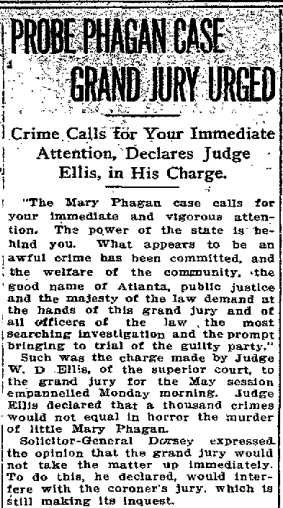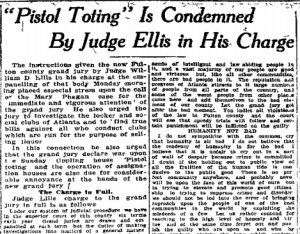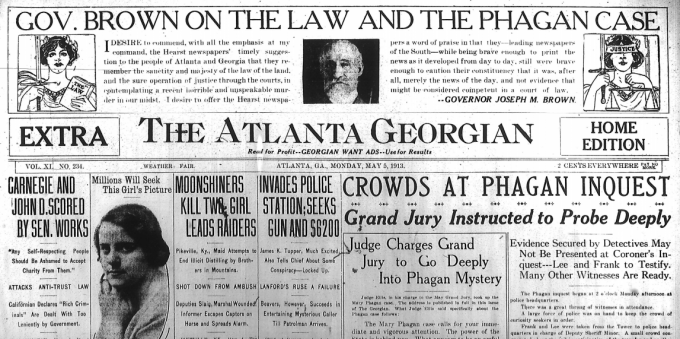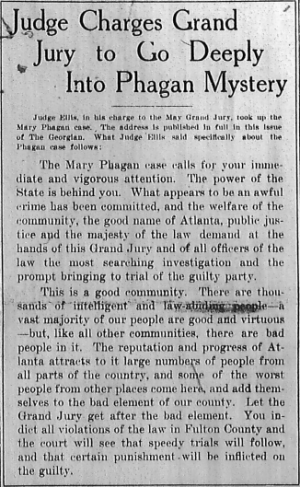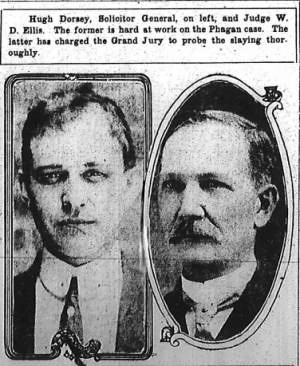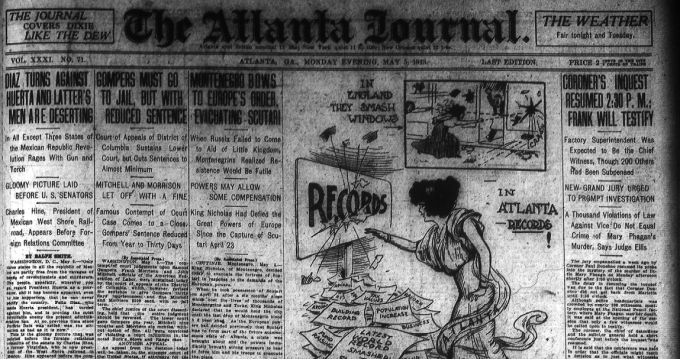 Another in our series of new transcriptions of contemporary articles on the Leo Frank case.
Another in our series of new transcriptions of contemporary articles on the Leo Frank case.
The Atlanta Constitution
Sunday, July 13, 1913
Solicitor Dorsey Does Not Believe the Negro Guilty of Any Part in Crime.
That Solicitor General Hugh M. Dorsey does not believe that Newt Lee, negro night watchman at the National Pencil factory, who was bound over by the grand jury with Superintendent Leo M. Frank for the murder of Mary Phagan, is guilty, was the only matter of importance brought out yesterday at the hearing of the habeas corpus before Judge W.D. Ellis by which Lee’s attorneys, Graham & Chappell, sought to free him.
Judge Ellis denied the motion for habeas corpus and remanded Lee back to the custody of the sheriff to await the outcome of Frank’s trial. Attorneys L.Z. Rosser and Reuben Arnold were also successful in their fight to prevent Frank being brought into court to testify.
Solicitor Dorsey declared that he had not brought a bill against Lee before the grand jury because he believed he had no evidence which would indict Lee.
The negro’s attorneys secured from the sheriff a statement that Lee would be given more eexrcise [sic], as the darkey declared that this was all that was troubling him. He said he was getting stiff from staying in his cell.
“Frank has the entire freedom of the jail whenever he wants it,” declared Attorney Chappell, “and Lee ought to be allowed some chance to take exercise.”
The character of the darkey and his love for the juicy fruit of a Georgia watermelon came out when Lee was being taken back to jail in charge of Deputy Plennie Miner.
“Why don’t you get Mr. Miner to buy you a nigh beer, Newt?” said a bystander.
“Ah don’t want no beer; all Ah wants is er watermelon,” replied the negro, and his large eyes rolled hopefully in his head.
“Ah ain’t had er melon this summer, and it’s the fust time that July ever come ’round without me having er melon.”
* * *

 Another in
Another in  Another in
Another in 
 Another in
Another in  Another in
Another in  Another in
Another in  Another in
Another in  Another in
Another in 